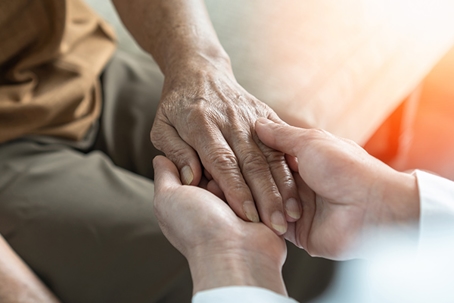Unfortunately, elder abuse is a growing concern, with seemingly more and more nursing home residents experiencing some form of abuse or neglect in recent years. For those with loved ones living in nursing homes, it has become increasingly critical to learn to identify the signs of elder abuse so they can take action to prevent it from happening to their family members or friends.
In this blog post, we’ll discuss the most common signs of elder abuse in nursing homes and offer tips that may help you prevent it from happening to someone you love.
Common Signs of Elder Abuse in Nursing Homes
Recognizing the signs of elder abuse in a nursing home can be difficult, especially if you don’t know what to look for. The following are a few of the most common signs of elder abuse in nursing homes:
- Signs of Physical Abuse – Physical abuse is one of the most common forms of elder abuse. Look out for bruises, cuts, broken bones, and other signs of physical violence. If your loved one has unexplained injuries or a sudden change in behavior, it may be a red flag.
- Signs of Emotional/Psychological Abuse – Emotional and psychological abuse is another common form of elder abuse. Watch out for signs of emotional distress, such as sudden mood changes, changes in eating habits, or depression. Make sure to talk with your loved one openly and maintain a healthy relationship with them.
- Signs of Sexual Abuse – Sexual abuse in elderly nursing homes is not uncommon, and it's not limited to physical contact. Watch out for sexually explicit material or inappropriate remarks by staff or other residents. Changes in your loved one's behavior, such as sudden increased anxiety or fearfulness, could be another indication of sexual abuse.
- Signs of Neglect – Neglect by staff is another form of elder abuse. This could involve a lack of food or water, insufficient sanitary conditions, medication misuse, or failure to provide basic medical necessities. If your loved one appears malnourished or dehydrated, it may indicate neglect.
- Signs of Financial Abuse – Paying attention to your loved one's finances is important to identify cases of financial abuse. This involves taking money or property from your loved one without their knowledge or consent, forging their signature on a document, or coercing them to surrender property or funds.
It's essential to maintain open communication with your loved one in a nursing home and regularly visit to keep them safe. Always be on the lookout for any significant changes in their health or behavior. Remember, you are their advocate.
If you suspect elder abuse, talk to a trusted caregiver, speak with a nursing home administrator, or call the authorities. Don't shy away from reporting suspected abuse or neglect. By actively watching out for elder abuse in nursing homes, you can safeguard your loved ones and better ensure they receive the care they deserve.
Speak with Our Experienced Nursing Home Abuse Lawyers About Your Situation for Free
There is absolutely no excuse for nursing home abuse. Our loved ones stay in nursing homes because they require extra care and protection. However, it is unfortunate that sometimes staying in a nursing home can result in more harm than good. At Pierce, Sloan, Kennedy & Early LLC, we have been dedicated to protecting the rights of injury victims and their families in Charleston and surrounding communities since 1999.
We understand the tragic consequences of nursing home abuse and how it devastates the victims and their families. That's why our team of experienced nursing home abuse lawyers is committed to helping victims and their loved ones seek justice. We are here to assist you in holding those responsible accountable for their actions, and to secure the compensation you need for medical care, funeral costs, and pain and suffering.
To schedule a free consultation with our experienced nursing home abuse attorneys, please give us a call at (843) 968-0886 or reach out to us online today. Your loved ones deserve justice, and we are here to fight for them.

